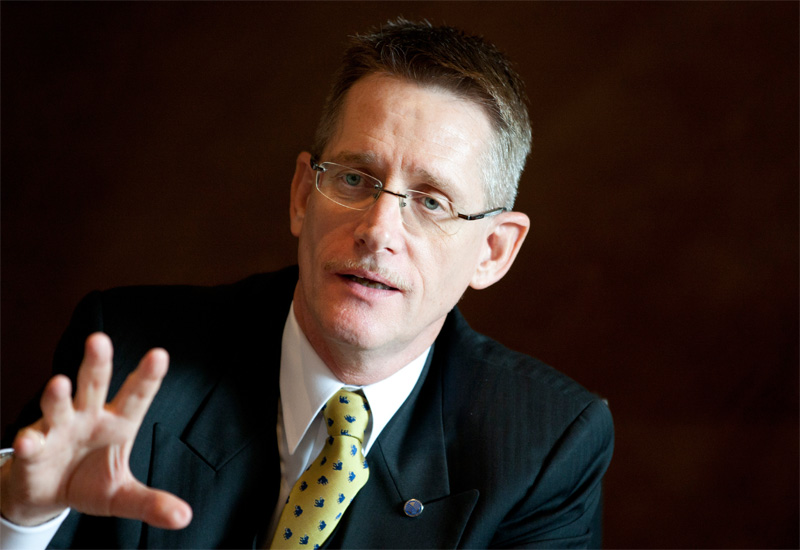 Thomas Tapken believes the UAE?s open skies policy will help secured continued growth for the hotel business.
Thomas Tapken believes the UAE?s open skies policy will help secured continued growth for the hotel business.
What are the main challenges you see going forward for the hospitality industry?
Rabih: Over the last two to three years, the laws have been changing to be more flexible in terms of changing jobs between hotels. This is becoming a bit of a challenge where any new hotel opening here — instead of hiring from overseas, they are now hiring here in Dubai; it’s an open market.
Thomas: The city average for staff turnover is 34-36%.
Rabih: The second challenge we have is the number of hotels that are coming to the city. This puts pressure on the general managers managing the hotels because at the end of the day we all want to achieve the same piece of business.

| Advertisement |
Sherif: I moved from Dubai seven months ago and what I feel is that the calendar of events in Abu Dhabi is not really as strong as Dubai, we don’t have as many events and exhibitions, which is a bit of a challenge. If this were to happen in Abu Dhabi, it would definitely have more impact on the business and the occupancy.
Daniel: Unlike Abu Dhabi and Dubai, Sharjah is a totally different city. Sharjah has seen phenomenal growth in the last six to eight months with the growth in Dubai, and the challenge is the drive between Sharjah and Dubai. Until the roads get widened, it’s going to be a major block.
Chantel: One of my challenges is that the hotel has to live up to the Dubai factor and there is such a high expectation from guests. So continually creating new concepts, empowering your colleagues is key.
JÖrg: The challenge from my point of view is visa issues for clients as much as for colleagues. Another issue is the staff turnover — in our case it’s not quite severe but over the past three years, every year we have actually reduced turnover. We had 35% last year and this year we are expecting only a 25% reduction. However, when you look at the fact that we have 1200 staff members, it’s still a big number.
What about opportunities for your properties?
Sherif: What I feel is the positive part is that the government is requesting people to live in Abu Dhabi and work in Abu Dhabi. So there is a lot of demand, you can feel people and businesses are coming up, there are lots of projects, especially on Yas Island, which has made a great impact on the city as well.
I was in a meeting with TCA Abu Dhabi recently and they are launching a huge beach club in Abu Dhabi, which will be attracting a lot of leisure business near the corniche area.
Mark: I think the increased activity on Yas Island will lead to huge growth in the leisure market in the coming years. It’s really becoming a destination in its own right.
Yas is only a 45 minute drive from Dubai; it will never be a seven-day destination, but now there’s enough there that it can be a three-day destination. The other big thing that’s happening is that there’s a lot more concert weekends, and word is that in 2014 they will increase even more.
Chantel: I think the new airline routes like Quantas coming through Australia is huge. I think having the ability to see that other leading airlines can come through here and work in close partnership with Emirates Airline and bringing in new destinations like that will have a huge impact on businesses in the summer months.
Thomas: For Dubai and Abu Dhabi, as more hotels are coming online it’s better to have a destination. The more attractions that come up, the better it is for the city. With the opening of 5000 new rooms, will we feel it? No. The attractions are growing so automatically you open new destinations, new airlines, you have open skies; a new airport is coming up.
The growth of the city is guaranteed. I’m a total believer that this city cannot go backward. In the last quarter (Q1) we had over 94% occupancy. By the end of the year we will easily be at mid 80 again so where are the challenges? As long as we have an open skies policy in this country, and the DMCs and tour operators worldwide see the city as an attractive city with all the infrastructure built in this part of the Middle East, it will continue.
Article continues on next page ...








 Search our database of more than 2,700 industry companies
Search our database of more than 2,700 industry companies









